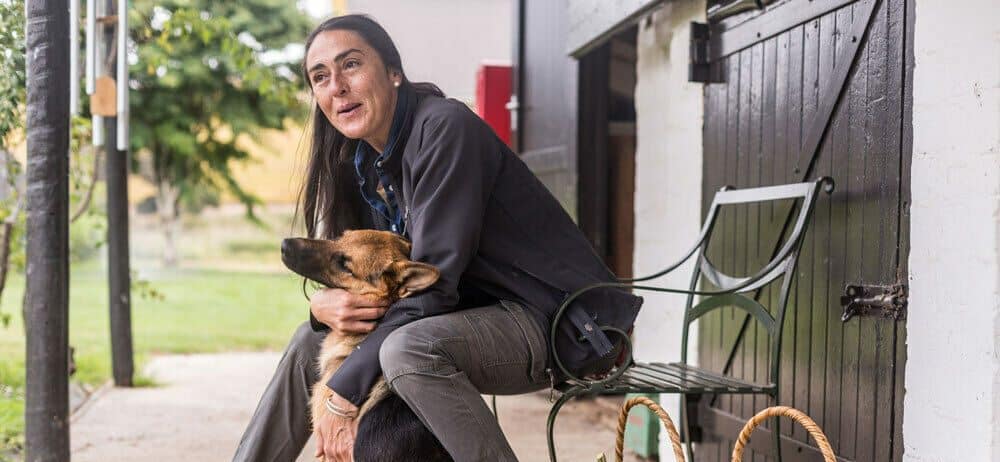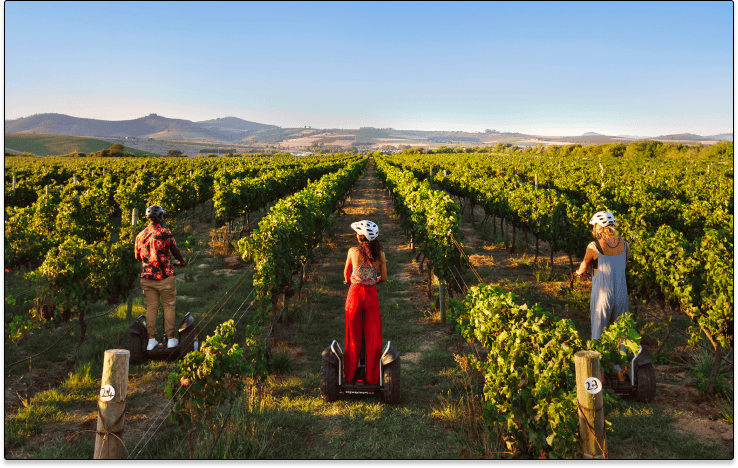A Unisa diploma of horticulture graduate, she’s practised organic food production and permaculture since 2006. In 2008, she joined South African National Parks (SANParks) where she acquired extensive experience in invasive alien plant eradication, landscape restoration and coastal resource management in the Eastern Cape. Passionate about social development and upliftment, she established a small community-run food garden and skills transfer facility in Addo National Park, and assisted with the creation of a community library and skills transfer centre there too.
In her personal capacity, Megan also started a permaculture market garden from home which supplied the public and guest houses in the Addo area with organically grown produce and preserves. After leaving SANParks, she managed a certified organic farm near Jeffreys Bay, before moving to the Cape Winelands in 2015 to develop the food garden at Boschendal. She ran this for four years, supplying fresh produce to Boschendal’s restaurants and picnic operation before moving to Spier.
“Spier’s owners, the Enthoven family, have long dreamt of making food production more accessible to the public visiting the farm,” she explains. “They envisioned a space where parents and children could ramble, harvest their own produce, and be inspired to begin growing their own nutritionally dense food at home. In 2019, the family approached me to assist in making their dream materialise.”
On one hectare of what was formerly an old horse paddock, Megan and her team of 10 now cultivate a bounty of nutrient-rich and delicious fruits, herbs, salad greens and vegetables. No inorganic pesticides or artificial fertilisers are used; instead, much effort is spent to ensure the soil is healthy so that the plants have a robust immune system to withstand attacks by pests. Worm compost and weekly foliar sprays (a natural form of fertiliser) boost nutrients. Alien vegetation removed from other parts of the farm has been chipped and turned into mulch.
When it comes to taking care of unwelcome critters, Megan gets help from a paddle of Indian Runner ducks. They roam freely through the garden during the day, snacking on snails and slugs and sleeping in mobile enclosures at night.
The bounty grown here is used in our restaurants and sold on the farm. When the first COVID-19 lockdown commenced in March 2020, Spier (in partnership with the Sustainability Institute) recruited 13 members of the nearby Lynedoch community to increase food production on the farm and learn how to grow their own fresh, nutritious produce at home. The harvested produce was donated to about 600 vulnerable families in nearby communities. The relief packs these families received also included seedlings and guidance on how to grow food. 11 families in Lynedoch started food gardens to provide their families and community with nutritious food, while eight of Megan’s original team of 13 helpers continue to work with her in the Spier Food Garden.
“They have all really blossomed, learning and growing so much; it’s so inspiring to see!” says Megan. “I’m lucky to work with such a great team, full of laughter and enthusiasm.”
With Megan’s support, six gardens were also established by Spier staff members in the farm’s staff village; three of these continue to grow food.
“Regenerative farming goes beyond sustainability,” says Megan. “It means leaving the space in a better state than how you found it, as opposed to simply maintaining the status quo. The high number of diverse crops and indigenous plants in and around the garden means that should we ever walk away from the space, nature would comfortably return through the pioneering, soil-restorative practices that have already been put in place.”
The garden’s transformation over the last two years has been remarkable.
“Soil carbon levels have been improved, leading to higher humic and fulvic acid levels,” she explains. “This means beneficial soil fungi and bacteria are present in abundance, releasing all the minerals required for healthy plant growth and good pest resistance. Earthworms have returned, assisting in developing a soft food and moist sponge underground, enabling plants to last longer without irrigating or feeding. Flowering species and safe habitats have lured beneficial creatures back, assisting us immensely in managing their natural prey that normally cause crop damage. It’s all about learning from and mimicking the best teacher in the world – Mother Nature herself.”
Taking a leaf out of nature’s book, Megan is passionate about the Food Garden being a space for learning, skills-sharing and growth – especially if it means this can result in food security in urban areas getting a boost.
“This tranquil yet productive space regularly hosts workshops and tours to share food production knowledge — including ones for kids! As the great Bill Mollison once said, ‘The greatest change we need to make is from consumption to production, even if on a small scale, in our own gardens. If only 10% of us do this, there is enough for everyone.’”
Since 2019, the garden has also been a voluntary member of the Western Cape Peer Guarantee System (PGS). This network of growers shares knowledge, resources, and connections around food grown according to organic principles. Where possible, Megan also shares surplus produce and growing supplies with other community food growing endeavours in many areas of South Africa.
“It’s Ubuntu in action,” says Megan, “PGS growers are united in collaboration and support for one another. For experienced growers, it’s an amazing opportunity to teach and to mentor, while the emerging growers tap into expertise that would normally take years of trial and error to gain on their own. Together, we learn, we share, we grow more.”









